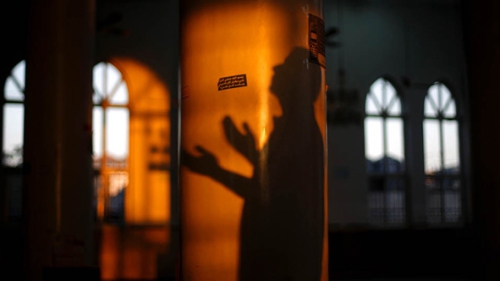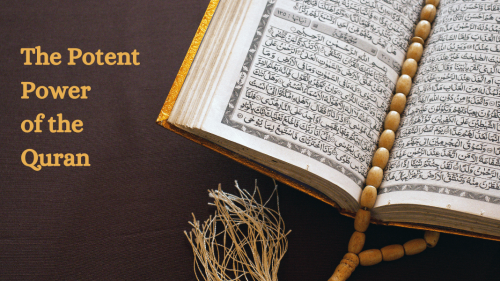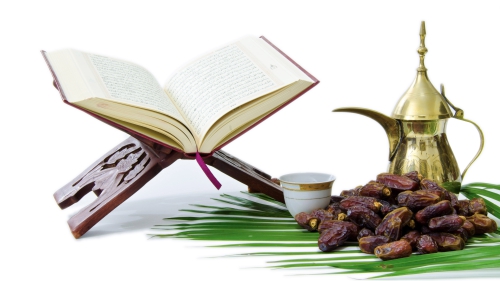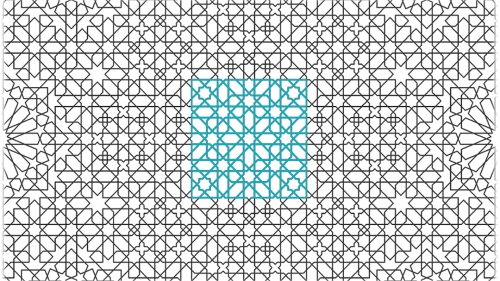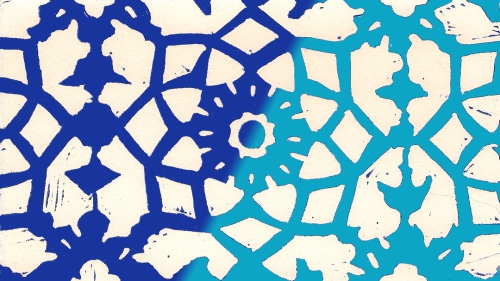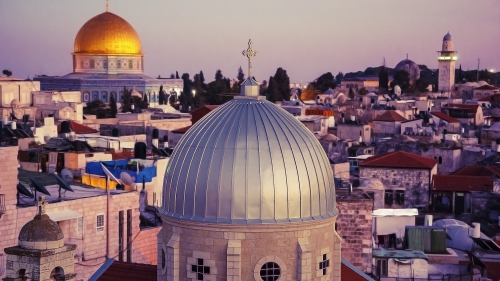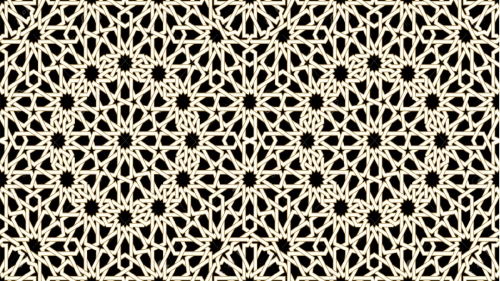Fasting According to the Quran
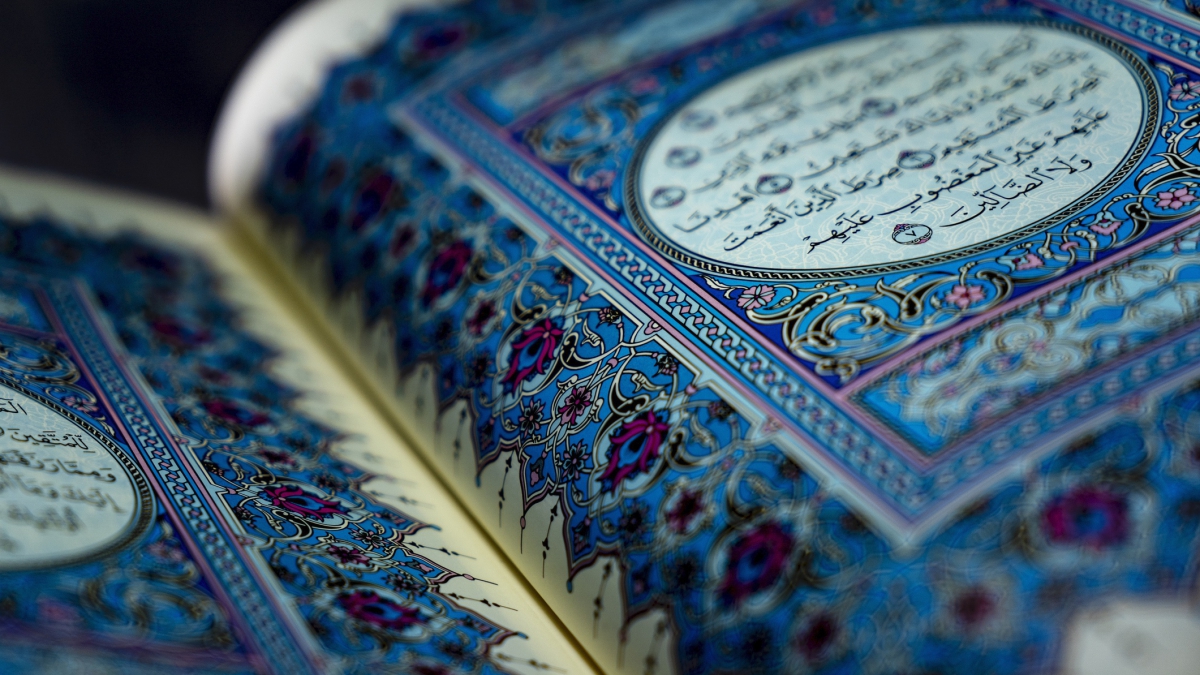
Believers! Fasting is enjoined upon you, as it was enjoined upon those before you, that you become God fearing. 1Like most other injunctions of Islam those relating to fasting were revealed gradually. In the beginning the Prophet had instructed the Muslims to fast three days in every month, though this was not obligatory. When the injunction in the present verse was later revealed in 2 A.H., a degree of relaxation was introduced: it was stipulated that those who did not fast despite their capacity to endure it were obliged to feed one poor person as an expiation for each day of obligatory fasting missed (see verse 184). Another injunction was revealed later (see verse 185) and here the relaxation in respect of able-bodied persons was revoked. However, for the sick, the traveler, the pregnant, the breast-feeding women and the aged who could not endure fasting, the relaxation was retained. (See Bukhari, `Tafsir al-Qur'an', 25; Tirmidhi, 'Sawm', 21; Nasa'i, `Siyam', 51, 62, 64; Ibn Majah, `Siyam', 12; Ahmad b. Hanbal, Musnad, vol. 3, p. 104; vol. 4, pp. 347 and 418; vol. 5, p. 29 - Ed.) Quran 2:183
Fasting is for a fixed number of days, and if one of you be sick, or if one of you be on a journey, you will fast the same number of other days later on. For those who are capable of fasting (but still do not fast) there is a redemption: feeding a needy man for each day missed. Whoever, voluntarily, does more good than is required, will find it is better for him; 2This act of extra merit could either be feeding more than the one person required or both fasting and feeding the poor. and that you should fast is better for you, if you only know. 3Here ends the early injunction with regard to fasting which was revealed in 2 A.H. prior to the Battle of Badr. The verses that follow were revealed about one year later and are linked with the preceding verses since they deal with the same subject. Quran 2:184
During the month of Ramadan the Qur'an was sent down as a guidance to the people with clear signs of the true guidance, and as the Criterion (between right and wrong). So those of you who live to see that month should fast it, and whoever is sick or on a journey should fast the same number of other days instead. Allah wants ease and not hardship for you so that you may complete the number of days required, 4Whether a person should or should not fast while on a journey is left to individual discretion. We find that among the Companions who accompanied the Prophet on journeys some fasted whereas others did not; none objected to the conduct of another. The Prophet himself did not always fast when traveling. On one journey a person was so overwhelmed by hunger that he collapsed; the Prophet disapproved when he learned that the man had been fasting. During wars the Prophet used to prevent people from fasting so that they would not lack energy for the fight. It has been reported by 'Umar that two military expeditions took place in the month of Ramadan. The first was the Battle of Badr and the second the conquest of Makka. On both occasions the Companions abstained from fasting, and, according to Ibn 'Umar, on the occasion of the conquest of Makka the Prophet proclaimed that people should not fast since it was a day of fighting. In other Traditions the Prophet is reported to have said that people should not fast when they had drawn close. to the enemy, since abstention from fasting would lead to greater strength. (See Ahmad b. Hanbal, Musnad, vol. 3, p. 329, and vol. 5, pp. 205 and 209; Darimi, `Sawm', 41; Muslim, `Siyam', 92; Nasa'i, `Siyam', 47; Bukhari, `Maghazi', 71; Muslim, `Siyam', 102; Ahmad b. Hanbal, Musnad, vol. 3, pp. 21, 35, .46; Tirmidhi, 'Sawm', 18; Nasa'i, `Siyam', 52; Bukhari, `Jihad', 29; Muslim, `Siyam', 98; Abu Da'ud, 'Sawm', 42; Muslim, `Siyam', 102, 103, 105; Ahmad b. Hanbal, Musnad, vol. 2, 99; Tirmidhi, 'Sawm', 19 - Ed.) The duration of a journey for which it becomes permissible for a person to abstain from fasting is not absolutely clear from any statement of the Prophet. (cf. relevant Traditions Abu Da'ud, 'Sawm', 46, 47; Nasa'i, `Siyam', 54, 55; Malik, Muwatta', `Siyam', 21, 27 - Ed.) In addition the practice of the Companions was not uniform. It would seem that any journey which is commonly regarded as such, and which is attended by the circumstances generally associated with traveling, should be deemed sufficient justification for not fasting. Jurists agree that one does not have to fast on the day of commencing a journey; one may eat either at the point of departure or after the actual journey has commenced. Either course is sanctioned by the practice of the Companions. Jurists, however, are not agreed as to whether or not the residents of a city under attack may abstain from fasting even though they are not actually traveling. Ibn Taymiyah favors the permissibility of abstention from fasting and supports his view with very forceful arguments. magnify Allah for what He has guided you to, and give thanks to Him. 5This indicates that fasting need not be confined, exclusively, to Ramadan. For those who fail to fast during that month owing to some legitimate reason God has kept the door of compensation open during other months of the year so that they need not be deprived of the opportunity to express their gratitude to Him for His great bounty in revealing the Qur'an. It should be noted here that fasting in Ramadan has not only been declared an act of worship and devotion and a means to nourish piety but has also been characterized as an act of gratefulness to God for His great bounty of true guidance in the form of the Qur'an. In fact, the best way of expressing gratitude for someone's bounty or benevolence is to prepare oneself, to the best of one's ability, to achieve the purpose for which that bounty has been bestowed. The Qur'an has been revealed so that we may know the way that leads to God's good pleasure, follow that way ourselves and direct the world along it. Fasting is an excellent means by which to prepare ourselves for shouldering this task. Hence fasting during the month of the revelation of the Qur'an is more than an act of worship and more than an excellent course of moral training; it is also an appropriate form for the expression of our thankfulness to God for the bounty of the Qur'an. Quran 2:185
Excerpted from "Towards Understanding the Qur'an". Translated and edited by Zafar Ishaq Ansari. English version of Tafhim al-Qur'an by Sayyid Abul Ala Mawdudi.
Footnotes
Topics: Quran, Ramadan Channel: Ramadan - Day 2, Ramadan Guide
Views: 51249
Related Suggestions
We hope you will find this interesting and useful. You can download the presentation from http://groups.yahoo.com/group/moreonislam/files/RamadanForBodyandSoul.zip
Regards,
Briefcast Editor [www.moreonislam.com]
We hope you will find this interesting and useful. You can download the presentation from http://groups.yahoo.com/group/moreonislam/files/RamadanForBodyandSoul.zip
Regards,
Briefcast Editor [www.moreonislam.com]
Oh the kindness of Allah the Merciful, the All Knowing!(swt) Praise to Him for the kindness bestowed upon members of his creation. It seems to me that it is really silly when someone states "Islam is barbaric" What have these people been reading?
"Invite (all) to the Way of thy Lord with wisdom and beautiful exhortation; and argue with them in ways that are best and most gracious: for thy Lord knoweth best, who have strayed from His Path, and who receive guidance"
I am grateful to the author of this article, for again like many a good Muslim, for reminding us the importance and significance of fasting as one othe the 5 pillars of Islam.
I agree entirely with the contents but just want to add one more point i.e the management of the " zakat fitrah ( alms or tithe of the fasting Muslim in Ramadhan ). Before I do so, it is worthwhile for me to remind all Muslims to pay this alms or tithe before the congregational prayer of Syawal i.e the end of Ramadhan.
On points of management, I understand that different Muslim countries have different authorities in collecting and managing the zakat fitrah. I am not worried at all on the collection aspect as the duty is on every individual Muslim to pay for him and his dependants, but my reason for concern here is the management of the alms.
Even in Malaysia, since it is a Federation with 14 states ( including the capital ), Islam is a matter within the jurisdiction of the state government instead of the Federal government.
Very often I don't see the poor or destitutes getting the much needed assistance or alms which they are entitled to after the month of Ramadhan.
So where did this money go ? On this score I am not saying that no poor man ever get assistance but I demand to see an equitable distributions according to the priorities set by the Islamic feqah. And I believe that this problem is not just exclusive to Malaysia alone but may also be in other Muslim countries as well. I wish to remind the religious departments or whatever authorities that this duty and the collection is an " amanah " ( trust ) from ALLAH SWT. If they breach it, then be prepared to be answerable to HIM on the Day of Judgment.
I want to know that the zakat that I am paying and that I had paid all these years goes to the rightful list of receipients particularly the poor, destitute, needy, the way farer, and so forth.
Wassalam,
Is it the Fiqh council of North America or ISNA Fiqh council ? Most prominent members are members of ISNA.
The Islamic Fiqh Council of America should consist scholars that represent the wide variety of muslims and the different groups in America.
The Islamic Fiqh Council of North America should have one scholar from ICNA , one from MAS, one from Jammat wal Sunnah, one from Tabliqi Jamat, one from African Muslim population like Warith Deen Muhammad, Hilal moonsighting committee, Shia council and other prominent groups. This would better represent the muslim population here and decision made by majority vote will be accepted by all Inshallah.


















